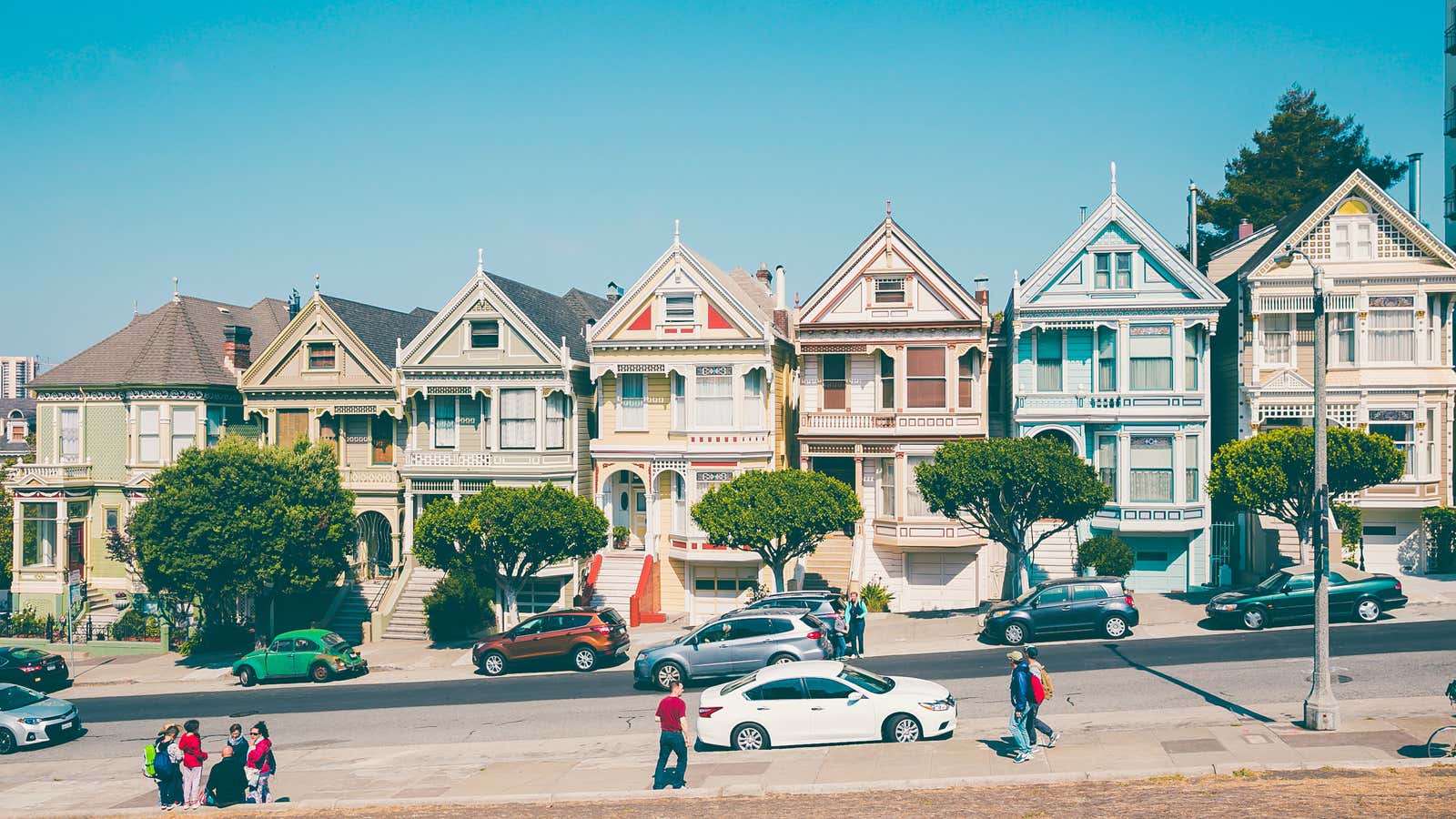Since the 1970s, coastal US cities have implemented laws that make it impossible for housing supply to equal demand. Proponents of these laws argue they are important for historic preservation, environment protection, and the livability of cities. Conveniently, such laws also happen to inflate the housing prices of many of their supporters—mainly the old and wealthy, who are the clear winners of these kinds of market-constraining regulations.
A new working paper (pdf) from the economists Edward Glaeser of Harvard University and Joseph Gyourko of the University of Pennsylvania shows exactly how much the winners have gained. The researchers analyzed household survey data from 1983 to 2013 (the last year data was collected), and found that housing wealth increased “almost exclusively among the wealthiest, older Americans.”
The chart below shows the change in average housing wealth by age group for the median US household (i.e. the 50th percentile), and for those in the 99th percentile (i.e. the top 1%). Only the median household headed by a 65-to-74-year-old had more housing wealth in 2013 than 1983. For the 99th percentile, every age group saw growth, but the biggest gains accrued to the oldest groups.
“The point we are making is straight out of an intermediate microeconomics class,” Gyourko said in a recent interview with the Global Housing Watch Newsletter. “The [chief beneficiary of] binding restrictions on the supply of new housing is the owners at the time the restrictions were imposed.” Gyourko goes on to explain that away from the coasts, in cities like Dallas, similar housing supply restrictions have not yet emerged. Thus, most of these gains went to coastal city real-estate owners.
The consequences of housing shortages in coastal cities have been profound. In addition to favoring older homeowners, these restrictions stifle economic growth—because these cities also happen to be among the US’s most vibrant economic centers, with high levels of productivity. With the lower real-estate prices that come from increased supplies of housing, more people could have moved to these cities, and participated in their prospering economies. The economists Enrico Moretti and Chang-Tai Hsieh estimate that housing regulations decreased US economic growth by an annual average of about 0.2% from 1964 to 2009.
While there is a rising movement of YIMBY (yes in my backyard) activists who advocate for more accommodating housing policy, Gyourko, also a supporter of undoing these regulations, is not holding his breath for change. He believes people are unlikely to support policies that lift restrictions that would lower the value of their homes, and that renters typically don’t have the political power to make change.
All Americans, besides the old and wealthy, should hope he’s wrong.
